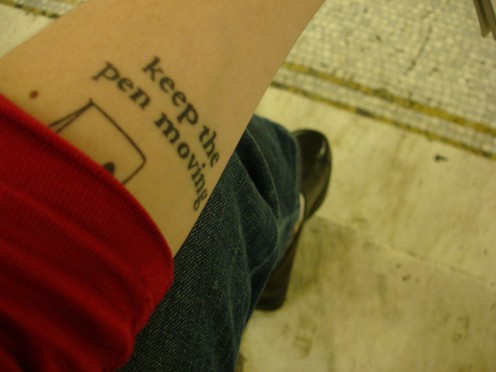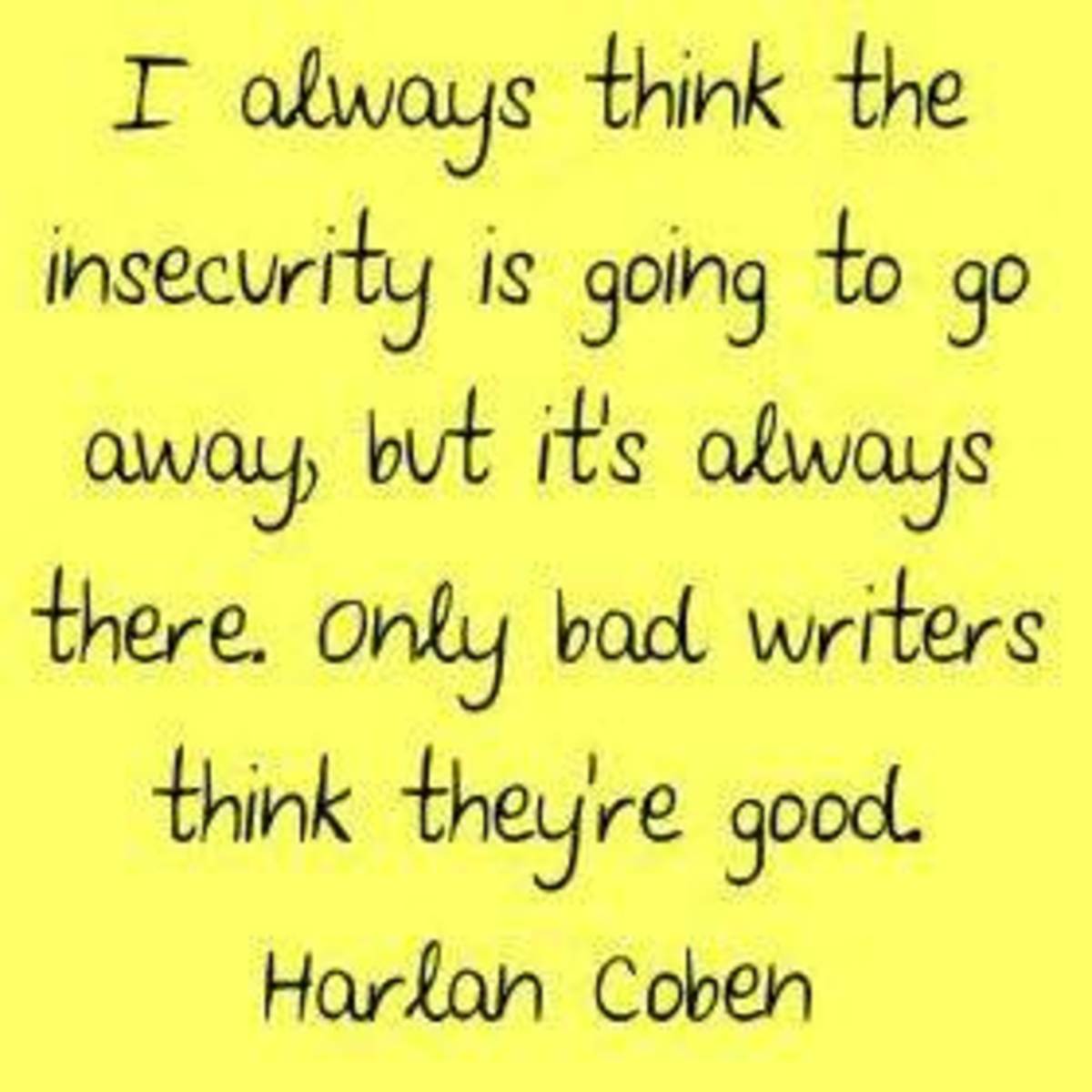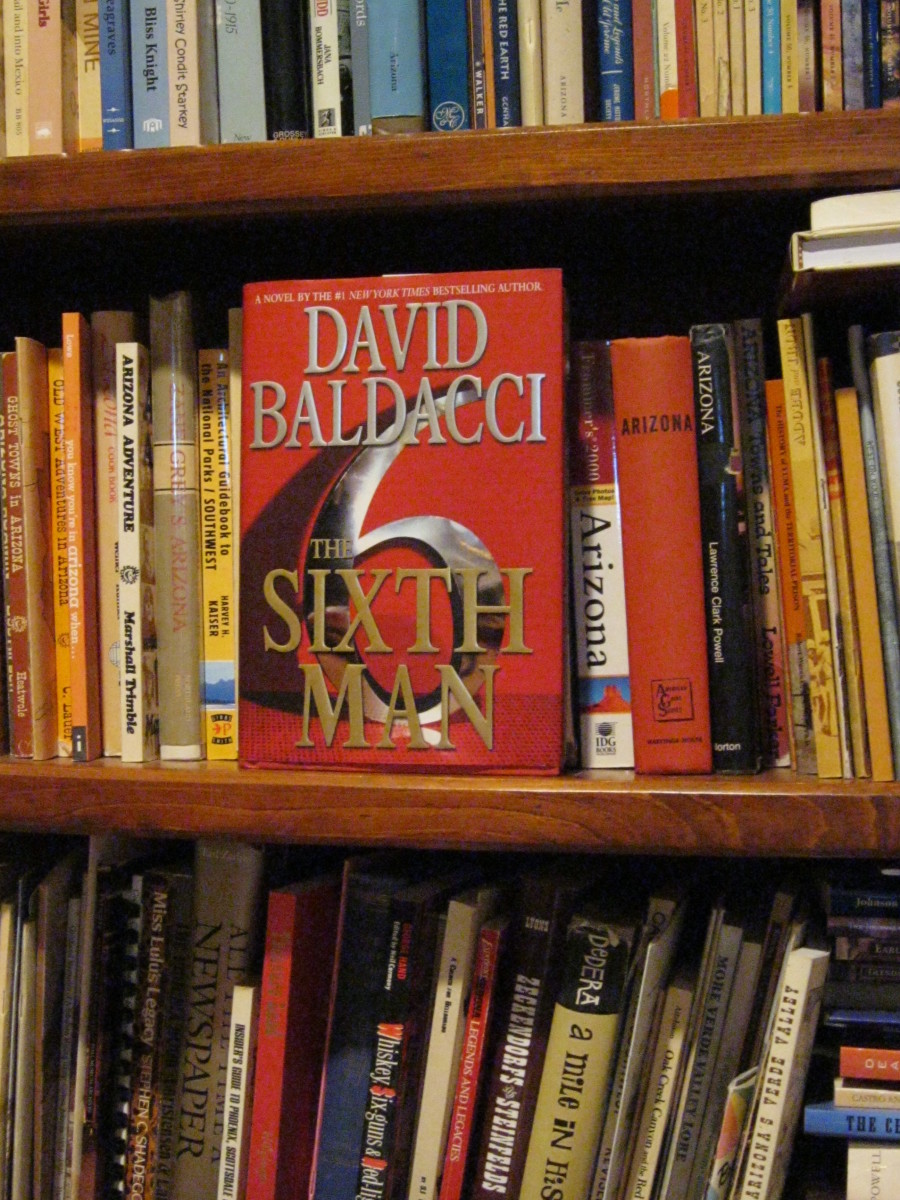How to Write: Start a Private Journal
Starting a private journal is easier than you think. A journal is a rewarding practice offering endless possibilities toward contentment and happiness.

Let go!
At the start of 2011, I did what many do: I resolved to make changes, to improve myself, to accomplish in the next year what I may have neglected in the previous. The first was simple: write every day.
I have been writing in a journal since I was twelve years old. It wasn't until I read Natalie Goldberg's how-to book Writing Down the Bones, that I discovered my journaling was more than simply writing about myself. It was, indeed, a craft. This craft was my means of expression. In the years that followed, I often found I had not written for a month, two months, and after my father died, two years! Did my soul notice the neglect? Yes. It did. Writing, through years of habit, had become my outlet. Once I let that outlet go, I harbored my feelings and emotions until knots formed in my back and my stomach always ached.
Because journaling has succeeded in providing me with a safe haven for my thoughts, emotions, wishes and secrets, I often encourage my friends to do the same. I'm shocked by their responses: "I'm not a writer," or "I'm not a good speller," or "I don't have time to make sure it's good." I wondered, do they think I am asking them to write the next great American novel? I have given these friends much advice, and some have gone on to start their own journals. I share that advice here because such a reward should not go uncollected.
Writing Tools
Start with the basics
Before we start writing, buy
yourself a notebook. If the idea of writing overwhelms you, I suggest
you get a notebook that is plain, ordinary, free of adornments. A fancy
notebook can often inhibit the writer, who then thinks the content must
match the value of the notebook it is in (in fact, a writer has already
"judged the book by its cover"). I find a cheap composition notebook
works best. A one-subject spiral notebook is also a good option, but the
temptation to tear out pages and throw them away is too great. Only get
this if you are unable to find a composition notebook. (Today, I use
moleskine journals, available at Barnes & Noble bookstores).
Find a pen. Or buy a ten pack of bic ballpoint pens. I find these are inexpensive (so you aren't terribly upset if you lose one) and when writing, no matter at what speed, the ink flows freely without gaps of dry ink.
Supplies in hand, sit down at a table or desk, by yourself, and open the notebook.

This is for you and you alone
This notebook that you have before you is simply that: a notebook. The pen is simply a pen. Forget the idioms and euphemisms you've heard that have kept you from reaching this moment ("the pen is mightier than the sword"). We are not asking for a duel; we are creating a space.
Set a timer for ten minutes. Ten minutes will go by far faster than you think. Use something that will make a noise when the time is up. Doing this will keep you from constantly checking the time and halting the process. Many cell phones have timers, or you can find a kitchen timer at a craft store or department store for fairly cheap.
Start simply and write the date. I always write the date. And then - listen to yourself. What are you saying? What is on your mind? Some people start with what they are used to writing: a list. You may do that. Many journals are simply lists that tell you far more about the person than they may realize. Have you ever found somebody's lost grocery list in the store and felt that you have somehow invaded an intimate privacy?
In my journals, I find it best to simply start with my day. "I woke up early and I'm dog-tired. It was hard to keep my eyes open." Some prefer to introduce themselves to their journal, and that's a great way to "break the ice," so-to-speak. "Well, my name is Cindy. Hi! I'm thirty-three..." Some also like to talk about the actual writing: "I can't believe I have a journal. I feel a little foolish." It's okay to feel foolish. Much like a person who has never read a story out loud to a child, it takes time to be comfortable hearing the sound of your own voice. Putting those words on paper is no different.
Below are starter suggestions. Once you choose one, or do whatever else you find works (and please leave a comment with any other suggestions!) keep at it for the entire ten minutes without stopping. The constant movement of your pen will free your mind. As your hand becomes intent on the task of moving, your brain lets go of that editor we all cling to, and in the desperation of that struggle words appear! They may even get messy (gasp!) but it is a sign that you are letting go. Twenty years later, I still do what Natalie Goldberg suggested in Writing Down the Bones: when my pen wants to falter and I have to think of what to write next, I write: "keep the pen moving." I have pages and pages of just those words.
Starter Suggestions:
1) Describe your day from the moment you woke up in as much detail as possible
2) Introduce yourself as you would to a new friend in a letter
3) Write about writing and what has prompted you to begin a journal, what you expect to get from it, what you hope to accomplish
4) Write about your earliest memories to get you started, using the mnemonic "I remember" at the beginning of each sentence
Keep going
Do
this every day, twice a day or more if you can. Over time, you too will
find that this quiet moment between you and you are cherished moments
that offer more than just a notebook now filled with words. The moment
offers you a chance to reconnect with the person most important in your
life: YOU. That small grace you give yourself is a calming salve for
whatever ails you. Soon, you may find yourself writing whenever you are
angry, happy or feeling any other extreme emotion. And each new entry
will become easier, your hand eager to share the feelings of the person
wielding the pen.You may soon find yourself creating more journals that go beyond the diary or your own private thoughts. Many have used journaling to fuel creativity, stop smoking, and watching their children grow, among other uses. You never know what is around the corner.
Congratulations! Now carry on...






